Seems nary a week goes by without another craft brewery adding a canning line or releasing another of its brews in some kind of aluminum package. This week was no different, and maybe historic, with Boston Beer Co. announcing its intentions to can. Let’s take a look at what the Sam Adams team said about its foray into cans and the rest of the canning developments this week.
Boston Beer Co.
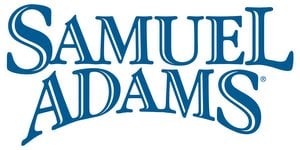
Is this a tipping (one back) point for the craft can revolution? Does this signal a new era in craft beer availability? Or does it just mean that the largest craft brewery decided to can some beers? Either way, it’s interesting.
Boston Beer Co. announced that it plans to offer Samuel Adams Boston Lager in a can — but not just any can. The new can design, which is the result of two years of ergonomic and sensory research and testing, aims to provide a drinking experience that is closer to the taste and comfort of drinking beer from a glass. The “Sam Can,” as the brewers call it, will hit shelves this summer, which is prime can time.
“The debate over bottles vs. cans has been a sticking point for brewers in the craft beer community for years,” stated Jim Koch, founder and brewer of Samuel Adams, in the company’s announcement. “In the past, I had my doubts about putting Sam Adams in a can because I wasn’t convinced that Boston Lager would taste as good as it does from a bottle. But cans have changed. And I believe we’ve designed a can that provides a slight but noticeably better drinking experience than the standard beer can.”
Martin Roper, Boston Beer chief executive officer, gave further insight into just how unique this canning experience will be on the company’s fourth quarter conference call. There was still a little uncertainty to his remarks.
“We are putting a can line into our Pennsylvania brewery, and we believe that we will have the capability with that can line to fill this can,” Roper said. “Now, the announcement came out because we are pretty confident that sooner or later this is all going to work. But bear in mind, no one has ever mass produced this can in significant quantities, and nobody has ever filled it in significant quantities. So it is part of our sort of ongoing innovation. The timing on it we don’t know for sure yet. We are hoping some time in early summer. But again, that’s subject to being able to do several things that have not yet been done.”
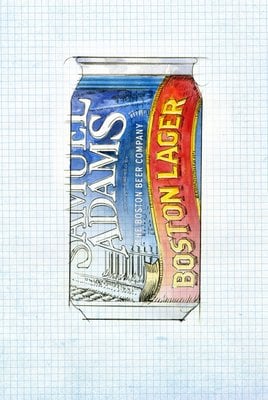
So, just how innovative is this thing? Koch and the other brewers at Samuel Adams first worked with can manufacturer Ball Corp. to understand can design, technology and how to package premium beer in cans. The brewers then worked with a design team at IDEO, and finally enlisted the help of sensory expert, Roy Desrochers of GEI Consultants. Desrochers, a recognized beer flavor expert for the Master Brewer’s Association of the Americas (MBAA), has provided counsel to the brewing industry for almost three decades. With Desrochers’ help, Koch studied every aspect of the new can, from how it could potentially impact the flavor of Samuel Adam’s flagship Boston Lager to the ergonomics of how the beer flows from the can and hits the taste receptors on a drinker’s tongue.
I worked with Jim and the other brewers at Sam Adams on an ergonomic and flavor study to understand the benefits of the new can,” Desrochers said. “The flared lip and wider top of the new Sam Can work in concert to deliver the beer in a way that makes the flavor closer to drinking out of a glass. Although subtle, this can delivers a more pronounced, more balanced flavor experience — something that was very important to the brewers. The extended lip of the can also creates a smoother, more comfortable overall drinking experience.”
The difference in drinking out of the new can as compared to a standard can will be modest, but drinkers should notice enhanced flavors and a more comfortable experience. The position of the can opening and wider lid, naturally opens up the mouth allowing for more air flow and positions the drinker’s nose closer to the hop aromas of the beer. Drinkers also noticed that the extended, curved lip of the can delivered the beer to the front of the palate to maximize the early enjoyment of the malt sweetness.
All told, the new Sam Can required a million-dollar investment in special equipment tooling along with time, research and testing. This new can will also cost more than the standard can to produce. Samuel Adams Boston Lager in cans will be available in 12-packs nationwide beginning early summer, for a suggested retail price of $14.99-17.99 (price varies by market).
Great Lakes Brewing Co.
There was a nice Crain’s Business piece on the growing craft beer empire of Great Lakes Brewing Co. and its place in the equally growing Ohio brewing scene. There were nuggets about further expansion — like how the company is working with the city of Cleveland to find a new plot of land to place an additional production and warehousing facility, and also how the company has plans to add in a canning line soon.
We quote the feature:
But expanding the company’s brewing capacity isn’t the only potential investment on Mr. Conway’s mind. Other investments could include opening brewpubs in other markets, producing larger, 750-milliliter bottles and purchasing a canning line to put its brew in something other than bottles.
“We’re hurt in the summer when our bottles can’t be in ball parks, golf courses and other venues,” Mr. Conway said.
We will keep close watch on Great Lakes’ progress with all of these expansion plans. We encourage you to read the entire Crain’s feature here.
Airways Brewing
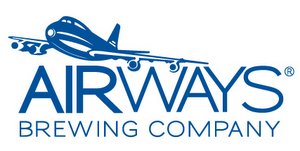
On March 9, Airways Brewing will celebrate three years of growth and expansion with a celebration — and several new releases, including the brewery’s first cans.
Offering a distinct new look and feel, the 16-ounce cans will house two new brews — Oatmeal PSA (Pale Session Ale) and Pre-Flight Pilsner.
“Cans felt like the perfect fit for these new brews,” said Dione Dittmar, co-founder of the Kent, Wash-based brewery. “Both sessionable, yet very flavorful, they’re perfect for enjoying throughout the day and the cans make them even more accessible.”
The Oatmeal PSA comes in at 5 percent ABV and 35 IBUs. Brewed with flaked oats for a creamy sweetness, this sessionable beer is balanced, offering a slight bite thanks to citrusy Northwest-grown Cascade, Centennial and Magnum hops.
The Pre-Flight Pilsner is a pre-prohibition style pilsner, fuller in body with a distinct, spicy hop presence, attributed to the Hallertauer and Saaz hops used to brew it. This one also comes in at 5 percent ABV and 30 IBUs.
Wynkoop Brewing Co.
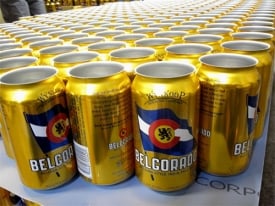
The Denver-based Wynkoop Brewing Co. announced that it is now self-distributing its fourth hand-canned craft beer — Belgorado Belgian-Style India Pale Ale — in the Denver area. The beer is handcrafted and handcanned in 12-ounce cans at the brewery on a table-top canning machine from Cask Brewing Systems.
This small-batch, Belgium-meets-Colorado beer is a creation of Wynkoop head brewer Andy Brown and has been a draft-only seasonal beer since its debut in the fall of 2010. The beer won a 2011 Great American Beer Festival bronze medal in the festival’s Experimental Beer category and is made from the finest of local ingredients.
“My goal was a simple recipe that allows the qualities of our native-grown ingredients to shine through,” Brown said. “But with a Belgian yeast strain that adds complexity and joins with the spiciness of the hops.”
Belgorado is a 6.7 percent ABV golden beer rich with pale malt flavors, layers of hops from start to finish and spice notes. Belgorado is made with whole-leaf and pelletized hops from Misty Mountain Hop Farm (now in its fourth year and grows 16 acres of hops). Belgorado’s main ingredient is a Belgian-style malted barley from Colorado Malting Co., another small, family-owned farm and specialty maltster in Alamosa, Colo. That grows its own barley and malts its Belgian-style malt in a slow, retro-minded fashion.
“We use warm moist air instead of dry heat,” said Jason Cody, president of Colorado Malting. “And slowly malt the barley for seven to eight days instead of the usual three or four. That process creates a more plump, fully modified grain with more sugar. It’s 100 percent natural, made the same way Europeans malted barley 500 years ago.”


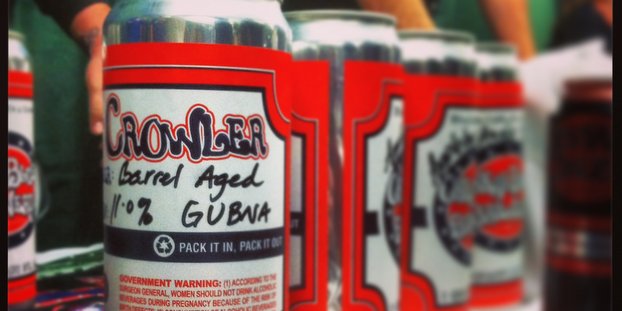

RT @CraftBrewingBiz: Yes we can! @SamuelAdamsBeer, @GLBC_Cleveland headline this week’s canning news. http://t.co/kVOfMabFT0
RT @CraftBrewingBiz: Yes we can! @SamuelAdamsBeer, @GLBC_Cleveland headline this week’s canning news. http://t.co/kVOfMabFT0